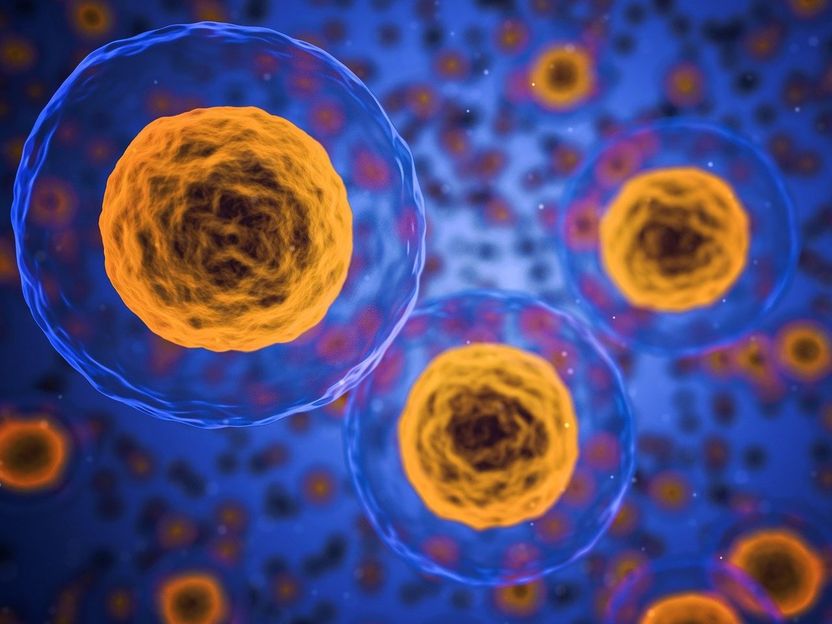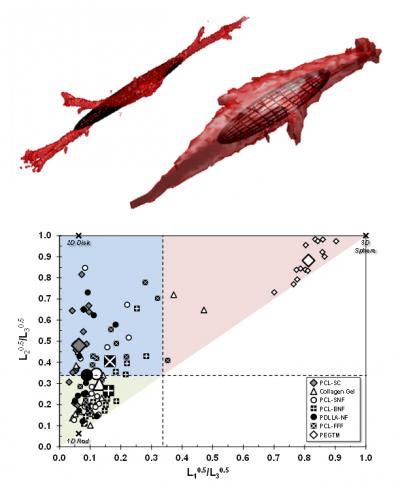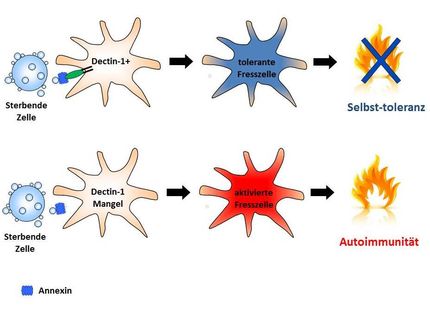Old protein – new function: tBID can directly trigger cell death
This opens up a new approach in cancer therapy
The protein tBID can trigger programmed cell death (apoptosis) by inducing damage in the energy suppliers of the cells, the mitochondria. apoptosis is essential for maintaining tissue balance. In addition, apoptosis plays a critical role as a defence mechanism and in the elimination of damaged or redundant cells in our bodies. Impaired apoptosis has been linked to many human diseases, from cancer and autoimmune diseases to neurological disorders and heart failure. The discovery by Professor Dr Ana Garcia-Saez and her collaborators and colleagues at the University of Cologne’s CECAD Cluster of Excellence for Aging Research that tBID, previously thought to be a signal transducer, can also execute apoptosis could open up new therapies to treat malignant cells such as cancer cells.

Scientists have discovered a new function of the protein tBID, which until now had only been associated with its regulatory role in cell death and cancer. However, tBID can also directly mediate controlled cell death (apoptosis). Symbolic image
pixabay.com
The protein tBID belongs to the family of BCL-2 proteins, which are fundamentally important for the self-determined apoptosis of cells and tissue balance. Because of the overlapping functions of this protein family, studying them individually is particularly challenging. Garcia-Saez and her team set out to characterize the roles of the various family members. Using cell lines lacking much of the BCL-2 proteins, they were able to determine the function of tBID. In addition, state-of-the-art microscopy (confocal, STED and electron microscopy) was used to analyse in detail the effects of tBID at the mitochondrial membrane in the cell. Activating tBID was also able to combat cellular infection with the bacterium Shigella flexneri and kill blood cancer cells (leukemia). In addition, the researchers showed that apoptosis triggered by tBID is independent of other known apoptosis induction pathways.
‘For us, it was amazing to see that proteins which are quite well known still surprise us after four decades. The realization that a protein that was considered a signal transducer for twenty years has an effector function under certain conditions is mind-blowing,’ Garcia-Saez remarked. This newly discovered function of tBID could in the future become useful in medicine. ‘For example, activating tBID could induce apoptosis when other known apoptosis signalling pathways fail or lack the proteins that carry it out,’ said Garcia-Saez. ‘Activating tBID could also help with Shigella infections, where the proteins that usually induce apoptosis are not activated.’
Original publication
Other news from the department science

Get the life science industry in your inbox
By submitting this form you agree that LUMITOS AG will send you the newsletter(s) selected above by email. Your data will not be passed on to third parties. Your data will be stored and processed in accordance with our data protection regulations. LUMITOS may contact you by email for the purpose of advertising or market and opinion surveys. You can revoke your consent at any time without giving reasons to LUMITOS AG, Ernst-Augustin-Str. 2, 12489 Berlin, Germany or by e-mail at revoke@lumitos.com with effect for the future. In addition, each email contains a link to unsubscribe from the corresponding newsletter.
Most read news
More news from our other portals
Last viewed contents
Perineology
Body_dysmorphic_disorder
Wedelolactone
The_fMRI_Data_Centre
Ploidy
Light_therapy






















































